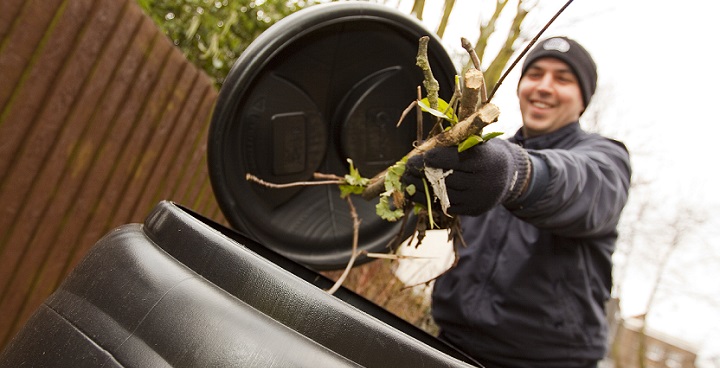
It’s International Composting Awareness Week this week, 1-7 May. There’s a great International Composting Awareness Week Facebook page, featuring posters designed by people from across the world, focusing particularly on what they call the ‘Soil and Water Connection’.
Composting has many benefits for improving the soil, one of which is saving water. Put it down on the top of your soil as a mulch and it will stop the soil drying out so quickly. It will also help sandy soil retain water and help clay soil drain better.
Compost contains valuable nutrients that will aid plant growth and it means you don’t have to spend money on expensive carbon intensive fertilizers.
A healthy soil is a pest free soil. It won’t get rid of slugs and snails completely but it will encourage more beneficial insects and discourage slugs and snails from taking over completely.
How to get started
Don’t know how to start composting? There’s lots of advice online and Lambeth has previously written articles here: ‘getting started‘ and ‘getting results‘.
The most important thing is to just do it! Put a good mix of materials in, stir it up every now and again and watch those worms appear and get to work.
If you get stuck why not visit your nearest community garden and see how they do it. In fact taking a way of small pot of developing compost from someone else’s compost bin is a great way to activate your own compost fact.
Many community gardens also run compost advice sessions/workshops, and local permaculture teacher Social Landscapes, is running a full 2 day improving your soil and composting training session later in the year.
Composting is one of the easiest things you can do to reduce your impact on the environment, your personal contribution to carbon emissions and climate change, and to improving your local environment by improving the soil. So get started now and tweet to us @ediblelambeth or contact us on Facebook to let us know how you get on.




Since writing this article I have come across this amazing info graphic. It is available to use under a Creative Commons licence. Please credit accordingly https://ilsr.org/compost-impacts/